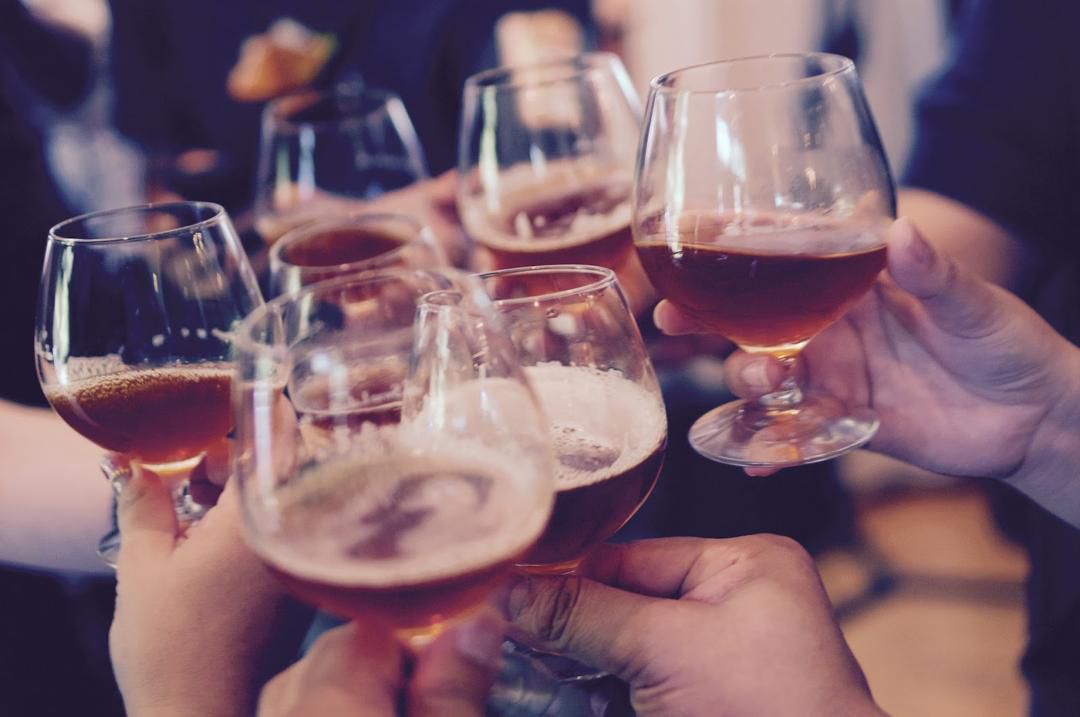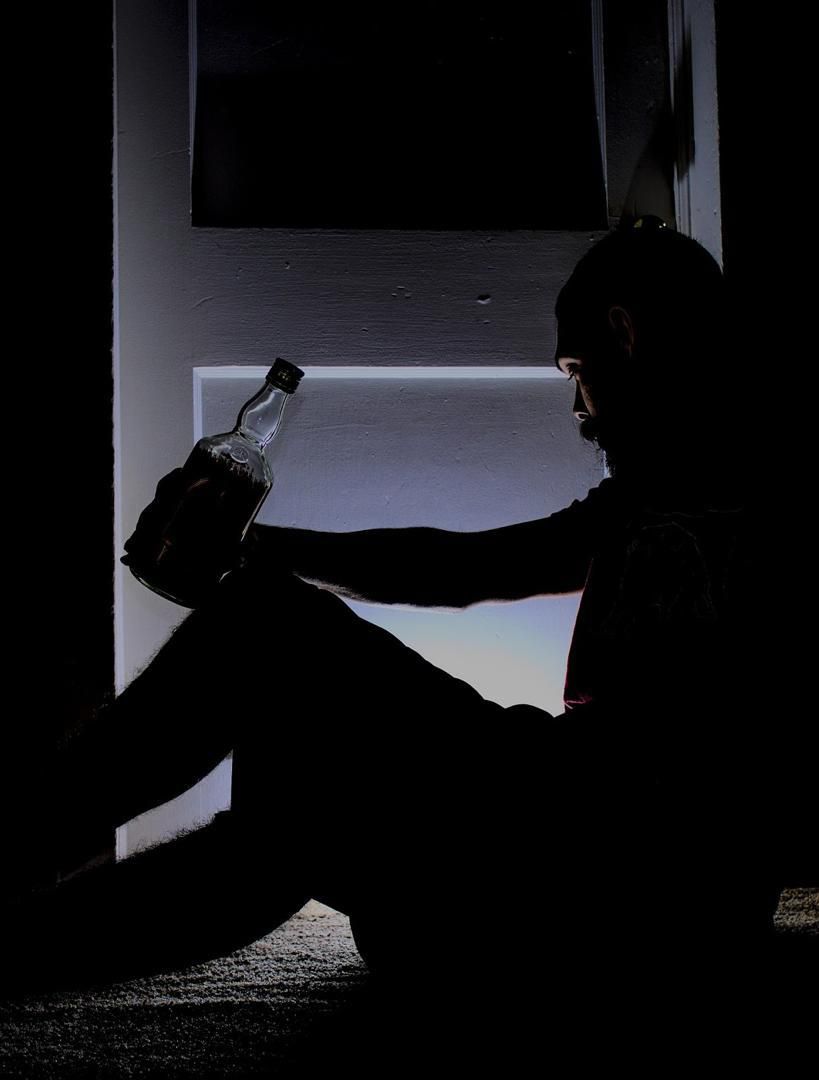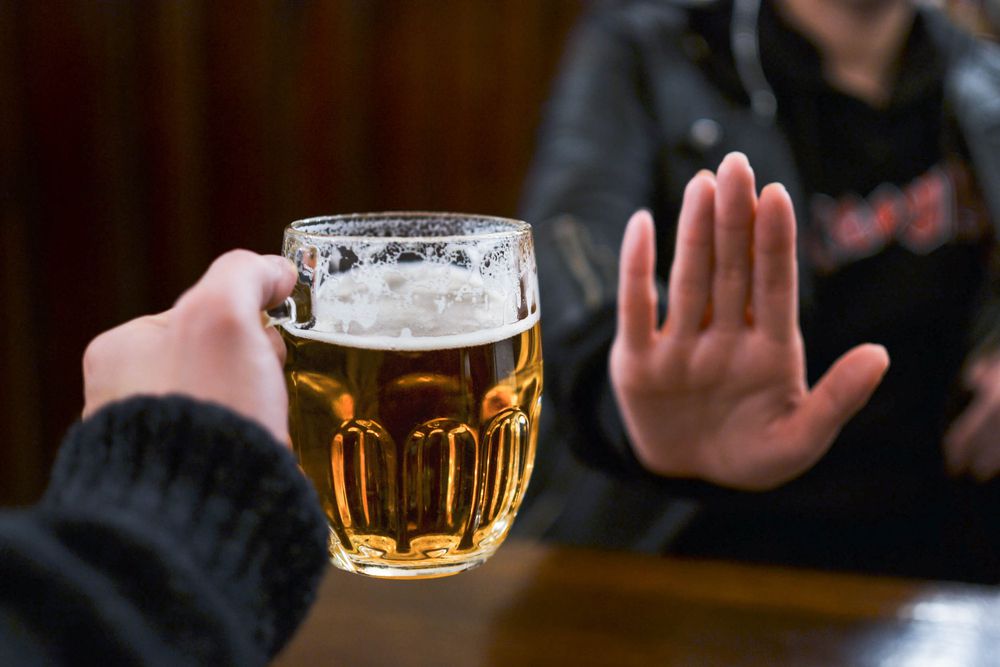Rehab is not a vacation, it is hard work, and you got through it. And if you spend some time thinking of how to avoid alcohol after recovery, you can set yourself up for long-term sobriety.
Graduating from alcohol addiction rehab is a big deal. You have worked hard to build up the life skills and stress management techniques that will enable you to stay sober moving forward.
You have focused on your relationships and your own personal development, and you have the confidence to rejoin the real world. You feel proud of yourself – and you should.
But how do you maintain sobriety? How do you say no to a bottle when you get out in the real world? Keep reading to find all the answers you need!
Why Does Relapse Happen?

In order to avoid relapse, it is helpful to understand the factors that may put you at risk. The first thing to know is that your first month out of alcohol addiction rehab is your highest-risk period.
If you can get through those first weeks without having a drink, your chances of staying sober long-term vastly increase, and these odds continue to improve with each passing week.
Leaving the protection of rehab
When you are in an inpatient rehab facility, your life is mapped out for you. You have a clearly defined schedule, you know what you’re eating, you don’t face any barriers when it comes to getting to your therapy sessions. You can follow your treatment program without having to think about the logistics of it all. Perhaps most important, you don’t have access to alcohol.
Even if you had the worst possible craving for a drink, you would not be able to get it, and the facility staff will support you through that craving. In rehab, avoiding alcohol is no concern, simply because you don’t even have to think about how to stay sober. It just happens.
Once you leave, it’s a completely different story. Being back in the real world can be scary, for these reasons:
- You have the freedom to determine your own timetable
- If you are unemployed or not scheduled for an immediate return to work, you will have a lot of time on your hands
- Alcohol is legal and very easy to obtain
Real-world stress can be overwhelming

Whenever you learn something in an artificial setting, it can be challenging to practice that information in the outside world. For example, you may ace a class at university, and be lost applying the knowledge from that class in an actual real-like setting.
The same thing goes for the life skills and stress management techniques that you learn in alcohol addiction rehab. The whole point of being in an inpatient program is to be protected from the stresses of the outside world.
But at some point, you have to leave rehab, and the stresses of the outside world are still going to be exactly where you left them. For a lot of people, the idea of coping with this stress is too overwhelming, and alcohol may seem like an easy solution.
Falling back into old habits

For all of us, life is filled with little reminders and associations. We have friends we’re used to going to the movies with, family members we run with or go to the gym with, places we go when we want to relax, do some work, or spend time with loved ones.
If you are a recovering alcoholic, you have places and people you associate with drinking. Conventional wisdom dictates that you simply avoid these people and places, but there are plenty of alcoholics who do most of their drinking with their spouse in the comfort of their own living room. For those trying to figure out how to stay sober, complete avoidance of reminders may not be realistic.
The Stages Of Relapse

A lot of people think of relapse as a single event in time. The physical act of using alcohol again is merely the last phase of relapse; it is the culmination of a process.
Figuring out how to avoid alcohol after recovery will be a lot easier for you if you put plans into place for each stage of relapse.
Stage I – Emotional relapse
Negative emotions start to develop, triggered by a bad day at work, an argument with a loved one, or simply a memory of something from the past. This leads to a lapse in self-care, which can take several forms, like self-isolation, poor eating habits, skipping a workout, or spending too much time playing video games.
Stage II – Mental relapse
This is when you may be starting to worry about how to stay sober. You’re still intending to abstain from drinking, but you may start to think about “the good old days” when you could simply grab a beer when you felt stressed. At this point, sobriety feels less like a lifestyle and more like an emotional and mental effort.
Stage III – Physical relapse
This is the culmination, the point at which you break down and drink. Whether you have one drink or many, the act of drinking can be emotionally devastating.
Recovering alcoholics often feel a sense of failure or disappointment in themselves after physical relapse has occurred. It is important to know, however, that physical relapse does not mean that alcohol addiction rehab has failed: you have simply suffered a temporary setback that you can recover from.
Related article: How Alcohol Abuse Affects Family Relationships And Friendships
Recognizing The Warning Signs of Relapse
A big part of knowing how to stay sober is the ability to recognize the early signs of emotional relapse. The sooner you can stop relapse in its tracks, the more successful you are likely to be.
Early signs that you may see in yourself or a loved one include:
- An increased desire to be alone
- A sense of feeling down
- Neglect of exercise routines
- Abandonment of healthy eating patterns
- A sense that you are “letting yourself go”
Tips To Avoid Alcohol In Recovery

Now, you know what the causes of relapse are and what the process of relapse looks like. Therefore you are in a better position to know how to avoid alcohol after recovery.
It’s not simply a case of refusing to pick up a drink. Instead, you need to take steps to ensure that you will not want or need to.
Environmental factors
You may not be able to move to a new house or avoid every single person you associate with drinking. However, you should make the environmental changes you can. People who were a negative influence on you “back then”, or those who do not support your sobriety efforts now, should be avoided. Alcohol and drugs – even those you were not addicted to – should be removed from your home.
Therapy
Continue the therapy that you found useful during alcohol rehab should be continued to whatever extent is possible. This may mean that you will seek out a psychotherapist or a family counsellor, or you may want to look for an art therapist or dance teacher in your area. By continuing the work you started in rehab, you can help yourself stay grounded and more able to cope with stress.
Group support
Support groups like Alcoholics Anonymous can be a very effective tool for people who don’t know how to stay sober. Group support can serve a lot of purposes. For one, it gives you access to a community of people who understand the challenges. As you eliminate former “friends” from your life, you have new friends to fill the void. Also, by finding a sponsor within that group, you have someone you can call if you are in immediate danger of drinking.
Take care of yourself
Self-care takes many forms. For some people, it means keeping up with a regular exercise program. For others, it can mean time set aside to sit down and read a book.
If you feel physically and mentally healthy, and you are well-grounded in your relationships, you are far more likely to be able to withstand the stresses of life without needing to drink.
Have a relapse prevention plan
One of the most important factors in avoiding relapse is deciding exactly how to stay sober when things start to look shaky.
A relapse prevention plan should include the following:
- A commitment from a trusted individual who will talk to you and give you the support you need if they notice that you appear to be suffering an emotional relapse
- Someone you can call if you are at immediate risk of drinking – this could be your AA sponsor or your rehab centre support line
- A list of activities you can perform if you start to feel that you are slipping into relapse
- A plan of action to follow in the event that you do drink. This way, you can recover and move forward
Final Words
Knowing how to avoid alcohol after recovery is not an exact science, because everyone is different. Your biggest tools in this journey are an awareness of what relapse really is, the tools and support to prevent it and, if necessary, to help you through it, and the knowledge that if you do relapse, you can recover.
At 1000 Islands Addiction Rehab & Treatment Centre, we believe in all of our clients, and we offer a comprehensive aftercare service that will support you after your time in rehab is over. For more information, give us a call at 855-601-0555.
Related article: Can I Drink Alcohol While on Birth Control?
